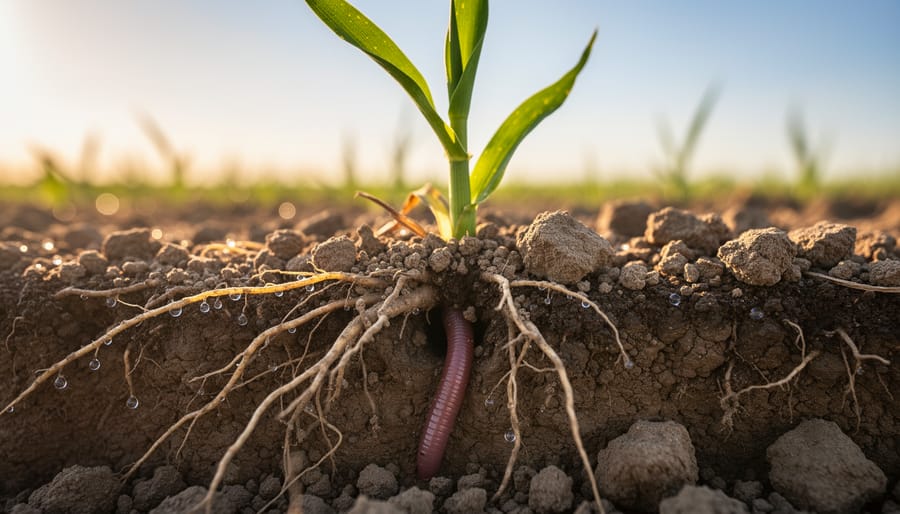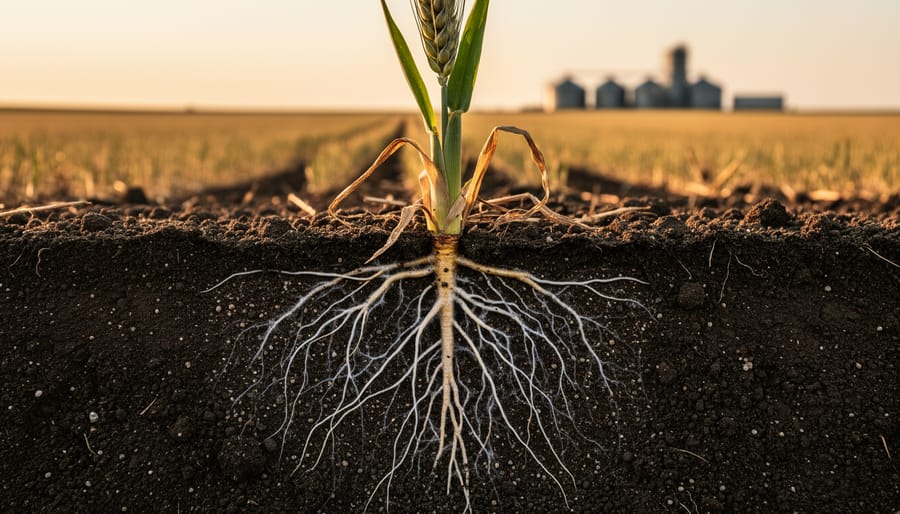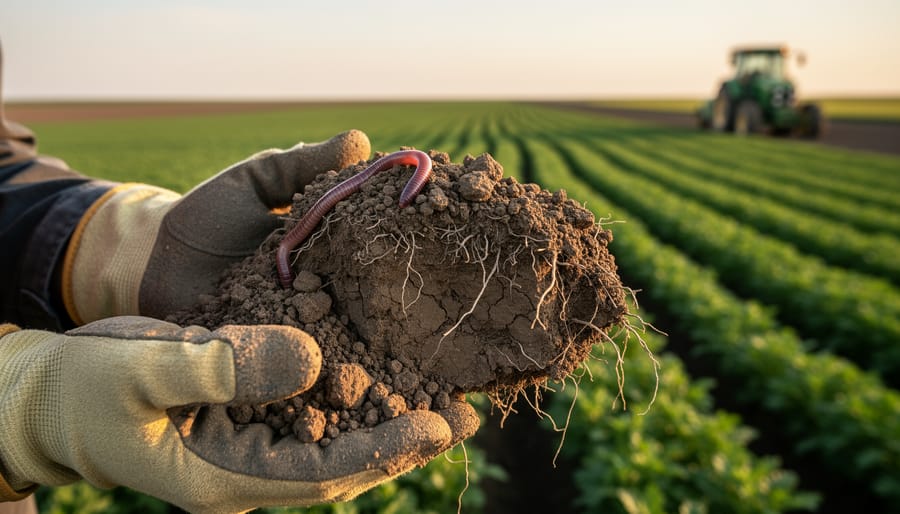Implement Alberta’s Toxic Organic Management Plan to reduce harmful agricultural compounds and protect the environment. Partner with Organic Farming, The Canadian Way for expert guidance on promoting sustainable agriculture practices. Adopt integrated pest management techniques to minimize pesticide use and prevent toxic buildup in soils. Transition to organic fertilizers and soil amendments to nurture healthy, resilient crops naturally.
Understanding the Toxic Organic Management Plan
Definition and Purpose
A toxic organic management plan is a comprehensive strategy designed to minimize the negative environmental impact of organic waste while promoting sustainable agricultural practices. Its primary purpose is to provide farmers with a structured approach to handling and disposing of potentially harmful organic materials, such as pesticides, herbicides, and livestock waste, in a manner that prioritizes soil health, water quality, and ecosystem balance. By implementing these plans, farmers can reduce their reliance on synthetic inputs, improve the overall health and productivity of their land, and contribute to a more sustainable and resilient agricultural system. Additionally, toxic organic management plans often include guidelines for composting, crop rotation, and integrated pest management, which help to enhance soil fertility, reduce erosion, and promote biodiversity on the farm. Ultimately, the goal of these plans is to empower farmers to be responsible stewards of the land while producing high-quality, nutritious food for their communities.
Key Elements of the Plan
Alberta’s Toxic Organic Management Plan focuses on three key elements: soil health, carbon reduction, and integrated pest management. The plan recognizes that healthy soil is the foundation of sustainable agriculture and prioritizes practices that enhance soil quality, such as cover cropping, crop rotation, and reduced tillage. These techniques increase soil organic matter, improve water retention, and reduce erosion.
The plan also emphasizes the importance of reducing carbon emissions in agriculture. By adopting practices like no-till farming, precision nutrient management, and efficient irrigation, farmers can minimize their carbon footprint while maintaining productivity. Additionally, the plan encourages the use of renewable energy sources and the development of on-farm carbon sequestration projects.
Integrated pest management (IPM) is another crucial component of the plan. IPM involves using a combination of biological, cultural, and chemical control methods to manage pests and diseases while minimizing the use of synthetic pesticides. This approach not only reduces the environmental impact of pest control but also helps to maintain beneficial insect populations and prevent the development of pesticide resistance.
Throughout the implementation of the plan, farmers can access support, resources, and training through various government agencies and organizations like Organic Alberta. By working together and sharing knowledge, the agricultural community in Alberta can create a more sustainable and resilient food system for generations to come.
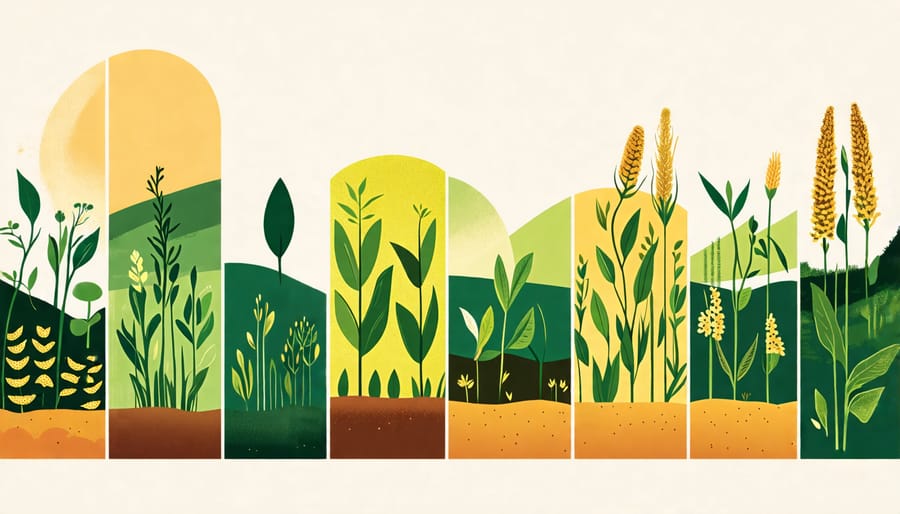
Benefits for Farmers and the Environment
Improved Soil Health and Crop Yields
Improved soil health is a cornerstone of Alberta’s Toxic Organic Management Plan, as it directly contributes to higher crop yields and long-term agricultural sustainability. By focusing on practices that enhance soil health, such as crop rotation, cover cropping, and reduced tillage, the plan helps farmers build resilient, nutrient-rich soils that can better support plant growth. These practices also promote beneficial microbial activity and improve soil structure, leading to better water retention and infiltration. As a result, crops grown in healthier soils are more resilient to stresses like drought, pests, and disease, ultimately leading to higher yields and quality. Moreover, by prioritizing soil health, the plan helps farmers reduce their reliance on synthetic inputs, thereby minimizing the potential for toxic organic compounds to accumulate in the environment. This not only benefits the farmers’ bottom line but also contributes to the long-term sustainability of Alberta’s agricultural sector. By adopting the practices outlined in the Toxic Organic Management Plan, farmers can play a vital role in preserving the health of their land for future generations while also improving their crop yields in the present.
Reduced Carbon Footprint
By implementing the Toxic Organic Management Plan, Alberta farmers can significantly reduce their carbon footprint and contribute to climate change mitigation efforts. The plan encourages the use of sustainable farming practices that minimize greenhouse gas emissions, such as reduced tillage, cover cropping, and precision agriculture techniques. These practices not only sequester carbon in the soil but also improve soil health and reduce the need for fossil fuel-intensive inputs like synthetic fertilizers and pesticides. Additionally, by properly managing and disposing of toxic organic compounds, farmers prevent these substances from contaminating the environment and contributing to greenhouse gas emissions through improper decomposition. Adopting the plan’s strategies allows farmers to play an active role in combating climate change while maintaining productive and profitable operations. The Toxic Organic Management Plan showcases Alberta’s commitment to sustainable agriculture and positions the province as a leader in environmentally responsible farming practices.
Enhanced Biodiversity and Ecosystem Services
The Toxic Organic Management Plan plays a crucial role in enhancing biodiversity and safeguarding vital ecosystem services in Alberta’s agricultural landscapes. By reducing the use of harmful chemicals and promoting organic practices, the plan creates a healthier environment for pollinators, beneficial insects, and wildlife. This, in turn, supports more resilient and productive farms. Implementing the plan’s strategies, such as crop rotation, cover cropping, and integrated pest management, helps maintain soil health, prevent erosion, and improve water quality. These practices not only benefit the farm ecosystem but also contribute to the overall well-being of surrounding natural habitats. By working together to adopt these sustainable methods, Alberta’s farming community can ensure a thriving, diverse landscape for generations to come. The Toxic Organic Management Plan is a powerful tool for farmers to make a positive impact on both their land and the broader environment.
Implementing the Plan on Your Farm
Assessing Your Current Practices
To effectively develop a toxic organic management plan, it’s crucial to first assess your current farming practices. Start by conducting a thorough review of your farm’s operations, focusing on areas where toxic organic compounds may be present or potentially introduced. This could include evaluating your pest management strategies, fertilization methods, and crop rotation practices.
Consider keeping a detailed log of the inputs used on your farm, such as pesticides, herbicides, and fertilizers. Note the frequency and quantity of each application, as well as the specific areas treated. This information will help you identify potential sources of toxic organic compounds and establish a baseline for measuring improvement.
Engage your farm staff in the assessment process, encouraging them to share their observations and insights. Their firsthand knowledge of day-to-day operations can be invaluable in pinpointing areas of concern and brainstorming sustainable solutions.
Additionally, consider reaching out to local agricultural organizations or extension services for guidance and support. Many of these groups offer resources and expertise to help farmers evaluate their practices and identify opportunities for improvement.
By taking a proactive and honest approach to assessing your current practices, you’ll be well-positioned to develop a targeted and effective toxic organic management plan that promotes the long-term health and sustainability of your farm.

Setting Goals and Creating an Action Plan
To set achievable goals for your toxic organic management plan, start by assessing your current practices and identifying areas for improvement. Consider factors like soil health, water conservation, and biodiversity. Break down your overall vision into smaller, measurable objectives with specific timelines.
Next, develop a step-by-step action plan to guide your implementation. Prioritize tasks based on urgency and feasibility, and assign responsibilities to team members. Include milestones to track progress and celebrate successes along the way.
Your action plan should cover key areas such as soil management, crop rotation, integrated pest management, and nutrient cycling. Consult with local experts and refer to resources like Organic Alberta for guidance tailored to your region.
Remember to build flexibility into your plan to accommodate unexpected challenges or changes in weather patterns. Regularly review and adjust your strategies based on results and feedback from your team.
By setting clear goals and creating a detailed action plan, you’ll be well-equipped to navigate the transition to sustainable, toxic-free organic farming practices. Embrace the journey as an opportunity for continuous learning and improvement, and don’t hesitate to seek support from the vibrant community of organic farmers across Canada.
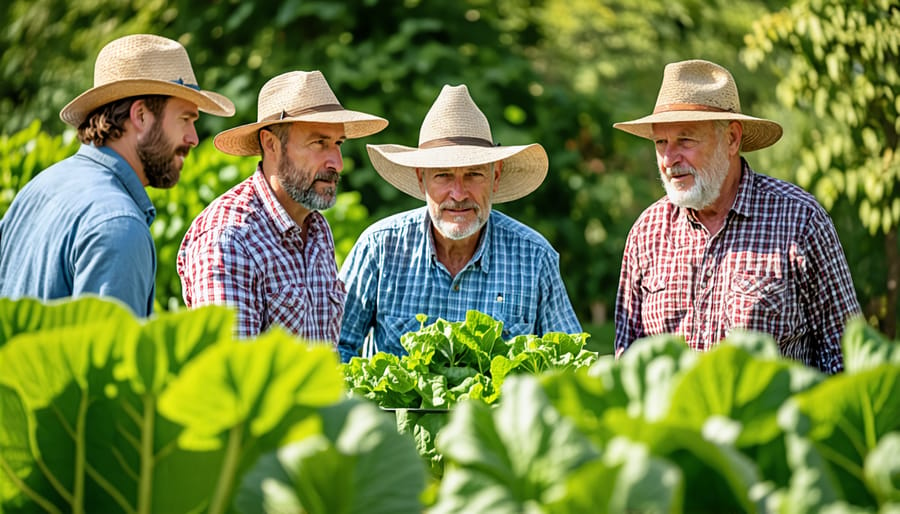
Accessing Resources and Support
Organic Farming, The Canadian Way offers a wealth of resources and support for farmers transitioning to sustainable, organic practices under Alberta’s Toxic Organic Management Plan. Our organization provides access to workshops, seminars, and training programs led by experienced organic farmers and agricultural experts. These sessions cover topics such as soil health, crop rotation, natural pest control, and navigating organic certification processes.
In addition to educational opportunities, we connect farmers with a network of mentors who have successfully implemented toxic organic management strategies on their own farms. This one-on-one support allows for personalized guidance and troubleshooting throughout the transition process.
Our online resource library includes case studies, best practices, and research specific to Canadian organic farming, ensuring that farmers have access to relevant and up-to-date information. We also offer a helpline staffed by knowledgeable professionals ready to answer questions and provide guidance on all aspects of toxic organic management.
By leveraging the resources and support available through Organic Farming, The Canadian Way, farmers can confidently navigate the challenges and opportunities of adopting sustainable practices, ultimately contributing to a healthier environment and thriving agricultural community in Alberta.
The implementation of Alberta’s Toxic Organic Management Plan is crucial for the future of sustainable agriculture in the region. By adopting these practices, farmers can reduce the environmental impact of toxic organic compounds, improve soil health, and protect the health of their communities. The plan provides a comprehensive framework for managing these substances, from identification and assessment to treatment and disposal.
Farmers who adopt the Toxic Organic Management Plan can expect to see numerous benefits, including increased crop yields, reduced input costs, and improved market access for their products. By demonstrating a commitment to sustainable practices, farmers can also enhance their reputation and build trust with consumers who increasingly prioritize environmentally friendly products.
Taking action to implement the Toxic Organic Management Plan is essential for the long-term viability of Alberta’s agriculture industry. Farmers are encouraged to seek support from organizations like Organic Farming, The Canadian Way, which provide resources, training, and networking opportunities to help them transition to sustainable practices. By working together and sharing knowledge, Alberta’s farmers can create a more resilient, profitable, and environmentally responsible agricultural system for generations to come.






